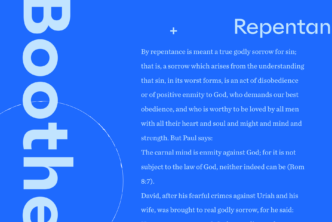At the young age of twenty-six, John Calvin finished the first edition of the Institutes of the Christian Religion. The results and response to the work was impressive, to say the very least.
He was only in his twenty-sixth year, when he published the first edition of the Institutes of the Christian Religion, with an address to the persecuting King of France which has ever been esteemed a production unrivalled for classic purity, force of argument, and persuasive eloquence. Designed as a defence of the calumniated Reformers, and an exposure of the base injustice, tyranny, and corruption of their persecutors, this work became the bulwark of the Reformation, and the stronghold of its adherents. It was made the Confession of Faith of a large portion of the Protestant world, and the text book of every student. It was recommended by a Convocation held at Oxford, to the general study of the English nation, and long continued to be the standard work in theology in the English universities. The Pope makes it one of his anathematizing charges against Queen Elizabeth, that the impious mysteries and Institutes, according to Calvin, are received and observed by herself, and even enjoined upon all her subjects to be obeyed.* According to Schultingius, the English gave these Institutes a preference to the Bible. “The Bishops,” he says, “ordered all the ministers, that they should learn them almost to a word; that they should be kept in all the churches for public use.” He informs us also that they were studied in both the universities; that in Scotland the students of divinity began by reading these Institutes; that at Heidelberg, Geneva, Lausanne, and in all the Calvinistic universities, these Institutes were publicly taught by the professors; that in Holland, ministers, civilians, and the common people, even the coachman and the sailor, studied this work with great diligence; that esteeming it as a pearl of great price, they had it bound and gilt in the most elegant manner; and that it was appealed to as a standard on all theological questions. According to this writer, and the Cardinal Legate of the Pope, these Institutes were considered more dangerous to the cause of the papacy than all the other writings of the Reformers.
Thomas Smyth, Calvin and His Enemies: A Memoir of the Life, Character, and Principles of Calvin. (Bellingham, WA: Logos Research Systems, Inc., 2009), 21-23.




